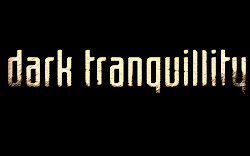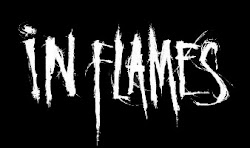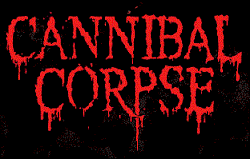
The Dogs, as the band like to call themselves, are no newbies to the indie rock scene. Originally formed in 1997 in New Zealand by Dan Young and Val Hunting, the band has only recorded two full-length albums over a span of 14 years, an output much lesser than most other bands. But who is to say that they don't produce quality material? Way before the recording of their two full-length records, their unique sound from their early demos and strong live performances had attracted award winning producer Malcolm Welsford's attention; who immediately offered to produce their debut album, "Anschluss". Welsford teamed up with the Dogs again in recording their sophomore album, "In The Face Of Disagreement", at Infrasonic Sound Studios in Los Angeles, and also gave them the added bonus of a new member, Grammy nominated drummer AAron Rossi of Prong, Ministry and John 5 fame. We catch up with the Dogs via e-mail and find out how they are doing so far.
Zetalambmary: Good day Dogs! It has been 14 years since the band was formed, so how does it feel to finally have a sophomore album out?
Aaron Rossi: I'm excited for ID!! The new album rocks!
Dan Young: Good, thanks.
Tomas Henry: Alright, thanks. How are you?
Val Hunting: Worth the wait for us and you guys.
Zetalambmary: The name of the new record sounds like it is about resisting an established order. Can y’all explain the meaning behind it?
Dan Young: When you buy the album, the artwork contains a short message we wrote which is a distinction of the meaning as we see it.
Tomas Henry: For me, this is one of many songs I’ve written words for with difficult political and social views. On the first record it was the advertising industry’s insistence on creating cripples, either physically or mentally in the population. On this one I had all kinds of different thoughts, one of which is the way we are all full of opinions but spend most of our time yelling at the TV or computer rather than turning it off and getting on with the life outside our door as well as changing the world by the actions you show people how to be with each other.
Val Hunting: We all come up against disagreement in our lives whether it be political, social, personal etc. We all have to prove who we are in the face of that. This record would not have happened if we let the “disagreement” win.
Zetalambmary: How did Malcolm Welsford learn about you guys? Do you all think he did a good job on the new record?
Aaron Rossi: Malcolm produced a great rock record for Indicator Dogs. He used to be a drummer, so we got along really well in the studio.
Dan Young: Malcolm saw us play live and offered to produce some early works, which led to him doing our first record. We became close friends and he brought us all to LA for the second one. I think he nailed the production; he has a gift to feel and understand music spatially... and has a great ear.
Tomas Henry: I think this is the best record Malcolm has ever produced for us, he’s our bro and is in the dog family now. He was the biggest supporter of me coming back to the band and never lost faith in what I was capable of doing once he heard the songs in pre-production with the wood chipper (AAron).
Val Hunting: Malcolm saw that early on people didn’t get us and they tried to change us so he got involved. He knew that we were unique and it was best to let us be ourselves and evolve as artists. The music industry used to support artist development back in the day (unfortunately not so much now), and Malcolm understood that we needed that. I think this record speaks for itself in terms of the quality, both in the maturity of the music and also the production. I love our first record, but this is a whole new level.
Indicator Dogs - Zoo Keeper (8th track off "Anschluss")
Zetalambmary: This album smells so much of indie rock that if you guys go any more indie, hardcore indie rock aficionados will have to drill through kilometres of earth just to dig you all up. Why doesn’t Aaron’s industrial background from his Ministry days turn up in the songs of “In The Face Of Disagreement”?
Aaron Rossi: Ministry's music and style is night and day compared to Indicator Dogs. They're a band whose albums consist of mostly electronic elements and heavy vocals, whereas Indicator is a pure rock band with melodic singing. I suppose Indicator could add more electronic elements and samples, but that would just be weird.
Dan Young: Hehe...I'm down with that. (know what I'm sayin'). Personally, if I was on "Who Wants To Be A Millionaire" and I was sitting at 500k and the final million dollar question was: "The band Indicator Dogs can best be described as; a) Heavy Rock; b) Alternative Rock; c) Indie rock; d) Progressive Rock?"... I would pass & walk away with the 500k as I have no idea how we should be classified! As to Aaron and Ministry ... Aaron is an artist and plays for the songs.
Tomas Henry: Yeah, too close to the band to understand how to answer that too dude. I’ve heard it described as validly fitting into so many styles so, ahh! Sorry.
Val Hunting: I agree with Dan and I think our fans are smart enough to listen to a wide array of genres and be able to discover us. This isn’t industrial music so AAron was able to play differently. That style of playing has its place and AAron does it better than anyone, but he was able to bring more drumming variety to our record because it is a different style to Ministry.
Zetalambmary: On the first record, “Anschluss”, you guys had a much rawer sound as compared to the more radio-friendly sound of the second record, “In The Face Of Disagreement”. Do you all think that you have grown mellow?
Aaron Rossi: I think the band matured musically; the second album is proof.
Dan Young: Yes. I blame the fast cars and long lunches. This is definitely us in our best Sunday Threads. Seriously though, if you listen to both you will still hear the interesting time signatures & rhythms, but the second album is presented in a way to draw the listeners in. This album is more resolved, less conceptual.
Tomas Henry: The other thing to remember is there are two different vocalists on the initial release. You can listen to the original record with just my vocals on it and it’s a different experience. I know that sounds like I’m a wanker and it’s almost certainly true, but because most people don’t realise that the record seems somehow too heavy when Christian (who stood in for me while I was in hospital) yelled and scream-sang, and I yelled, screamed and sang along together too. So with our voices combined, it’s a lot of information to try and take in.
Val Hunting: I actually think that the music is heavier on this record, but the vocals are mellower.
Zetalambmary: The term “indie” can be a very difficult term to be used accurately. Certain “indie” rock bands like Death Cab For Cutie and Neon Trees have grown so famous that it is ironic how their fans still consider them “indie rock”. What are your views on this issue?
Aaron Rossi: I'm not familiar with these famous bands. I would think indie bands are bands on an independent record label. I've only heard the term "indie rock band", not "indie metal band", so it probably has to do with their style, not their status. To me, they're just rock bands.
Dan Young: I think it’s fun discovering a band and playing it for your friends. As to my views about success, I'm all for earning a decent living, and less about the fame.
Tomas Henry: Man, I just get up and do what I do and it’s the greatest thing in the world to make people have fun and feel their joy when you sing to them. I don’t think about some other fucker crying about his wealth and fucking houses; I just sing the songs and the company takes all my money.
Val Hunting: With the current state of the industry, aren’t we all “indie” these days? I agree that it’s a difficult term to use accurately. I remember when “indie” rock was [made up of] bands like REM, U2, STP, Nirvana and they all became famous as well from underground activity. I think “indie” is a term that really means, “the-record-label-will-eventually-catch-on-if-enough-people-think-its-cool” and do something about it which makes them more famous. I think this is what has happened to indie bands over the years, they build their fan base independently and then they get support from labels or investors. It has nothing to do with the style of music that is played or how famous they eventually become.
Indicator Dogs - Summer Storm (5th track off "In The Face Of Disagreement")
Zetalambmary: Do you guys strive to be as successful as them someday?
Aaron Rossi: For sure! We wanna be famous like those bands you're talking about.
Dan Young: Wednesday.
Tomas Henry: Refer to answer above.
Val Hunting: If you define success by money, then yes, Wednesday is good.
Zetalambmary: What are some of your all-time favourite records?
Aaron Rossi: Death - Symbolic. Rush - Exit Stage Left. Sublime - 40oz To Freedom. Slayer - Divine Intervention. Yanni - Live At The Acropolis. Maynard Ferguson - Live From San Francisco.
Dan Young: PJ Harvey - Stories From The City, Stories From The Sea. Fugazi – Repeater. Fugazi - End Hits. Refused – The Shape Of Punk To Come: A Chimerical Bombination In 12 Bursts.
Tomas Henry: The Cure - Kiss Me, Kiss Me, Kiss Me. Beethoven’s 6th, 7th and 9th Symphonies. Sinatra’s Christmas record. Bad Brains – Rock For Light. Bad Brains – Quickness.
Val Hunting: (Seriously, how much time do you have!) Fugazi – Repeater. Fugazi – 13 Songs. Kate Bush – The Dreaming. PJ Harvey – Dry. Kate Bush – The Dreaming. Kate Bush – Hounds Of Love. Mastodon – Crack the Skye. Mastodon – Blood Mountain. Vision Of Disorder – From Bliss To Devastation. Vision Of Disorder – Imprint. Skinlab – Bound, Gagged & Blindfolded. Girl Talk – All Day. Kronos Quartet – Phillip Glass String Quartets. Echo & the Bunnymen – Heaven Up Here… and about 50,000 more I didn’t mention.....
Zetalambmary: What about your influences and the musician each one of you admire the most?
Aaron Rossi: Jimi Hendrix.
Dan Young: Abstract painting. Prince.
Tomas Henry: David Turner, gut reaction and contemplation are wonderful places to create from. Handel.
Val Hunting: Dan and Tom influence me as well as the art of creating unique harmonies; the less travelled musical path. Kate Bush.
Zetalambmary: Had the North American tour with Killing Joke still went on as originally planned, what would have been the first thing each one of you would say or do to Jaz Coleman when you all saw him?
Aaron Rossi: Hey Jaz!!
Dan Young: Offer him one of Mama Rossi's cookies.
Tomas Henry: Give him a hug and tell how bad we feel for his band then ask him about some quantum string theory I've been thinking about.
Val Hunting: Tell him he could have Mama Rossi’s cookies but NOT the pumpkin or lemon slice.
Zetalambmary: Have you all ever thought of asking Dan to design a unique recording studio just for Indicator Dogs?
Aaron Rossi: Ya, we'll call it the Indicator Dog Pound.
Dan Young: Haha! I’m pretty sure I slept through Acoustics theory at university... but I know Tom and Val would bounce ideas off me for their Mansions.
Tomas Henry: Yes, and we have already talked at great length about such a thing.
Val Hunting: Of course, he would ace it with German precision.
"In The Face Of Disagreement" was released on 24th May, 2011 through Rocket Science Ventures.















